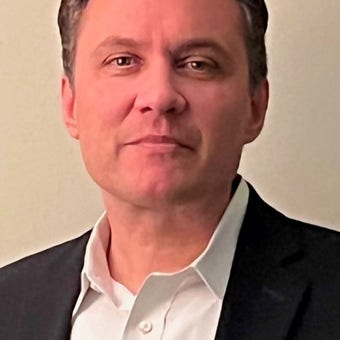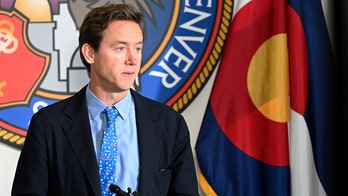Tucker Carlson: The climate gods demand you suffer
WARNING: Graphic footage—Fox News host Tucker Carlson calls out outrageous leftist ideas to help the environment, on 'Tucker Carlson Tonight.'
Secretary of the Interior Deb Haaland said Tuesday that the harmful effects of climate change being felt today around the world would not be as bad if early colonizers had adopted the environmental practices of the indigenous tribes they eventually supplanted.
"Many of the challenges we face today – a warming planet, the loss of habitat and wildlife, dying coral reefs – these could have been lessened or completely avoided – if early colonists had valued the stewardship practices and environmental wisdom that tribes have cultivated over thousands of years," Haaland said in her prepared remarks in Perth, Australia.
Haaland appeared to be talking about both the situation in America and Australia, as well as other countries that were colonized over the last several hundred years.
Haaland said her mother’s side of the family can be traced back 35 generations to an indigenous tribe that "has called the Southwest United States home for millennia." She said that tribe lived in that region of the world in a sustainable way, and used its knowledge to "escape drought, to feed their families, to care for the earth, and to coexist with the land, water, and wildlife that sustained them."
NATIVE AMERICAN ATTORNEY NAMED AS TOP LEGAL ADVISOR TO INTERIOR SECRETARY DEB HAALAND
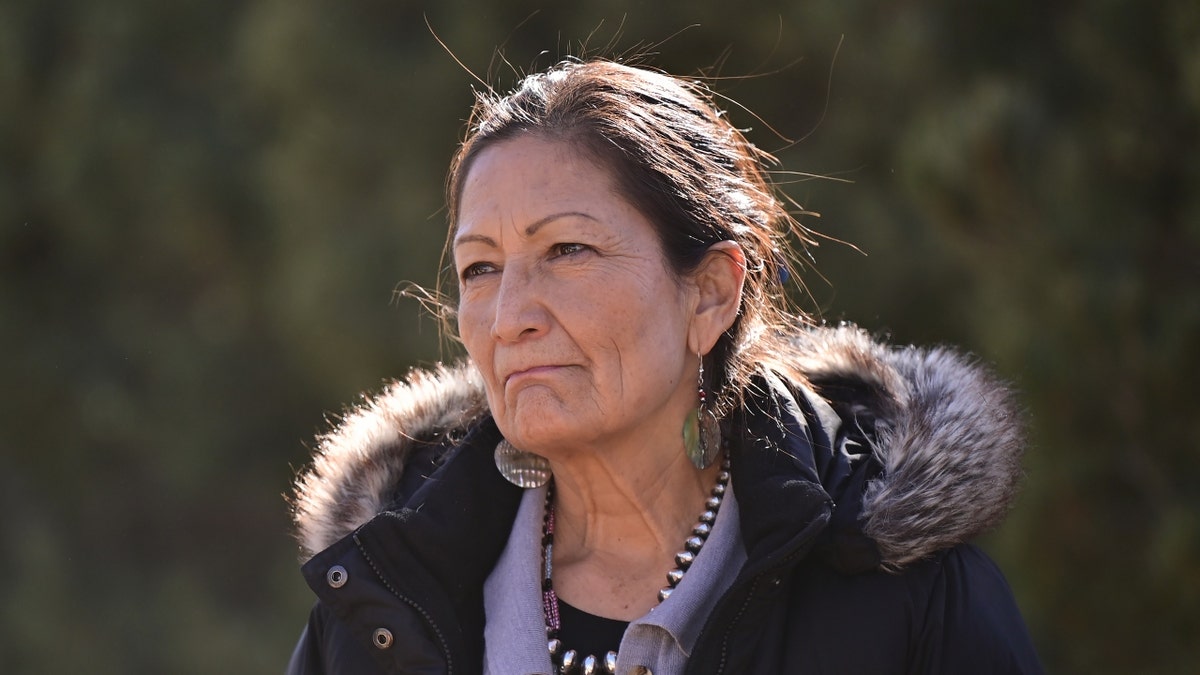
Secretary of Interior Deb Haaland said in Australia Tuesday that if colonists had taken on tribal environmental practices, the global climate crisis might have been avoided. ((Photo by Hyoung Chang/MediaNews Group/The Denver Post via Getty Images))
She said that in Australia, Aboriginal and Torres Strait Islander people "have cared for the land that sustains communities across this country."
Haaland said that solving the climate crisis requires an effort to draw on the hundreds of years of experience that indigenous populations have living on the land in a sustainable way. She said the Biden administration is seeking help from Native American tribes to fulfill its pledge to cut carbon emissions by 2030.
"Through indigenous-led conservation and co-stewardship initiatives, the United States is creating opportunities for the original stewards of our country’s lands and waters to participate in how they are managed," she said.
DEB HAALAND: WHAT TO KNOW ABOUT BIDEN'S SECRETARY OF THE INTERIOR NOMINEE
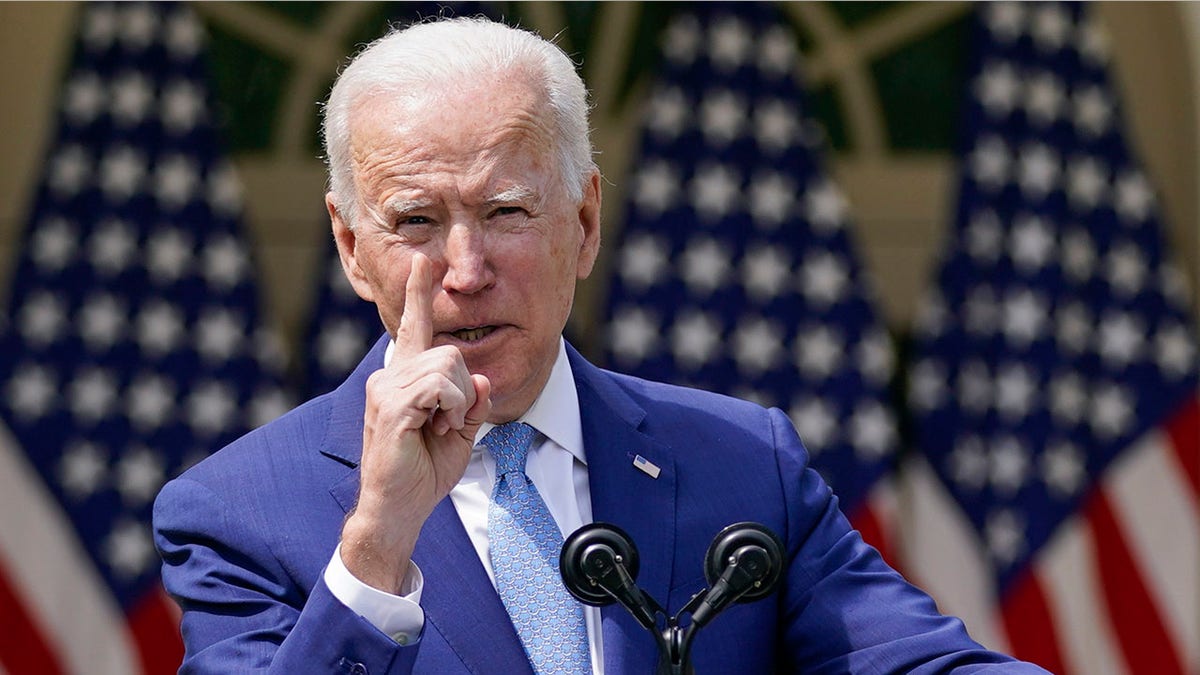
Haaland said President Biden's administration is working with tribal groups in an effort to restore environmental sustainability in parts of the U.S. (AP Photo/Andrew Harnik)
"What is critical here is that we are putting words into action," she added. "And the exciting part is that much of what we are doing can be replicated for a more equitable and climate-resilient future worldwide."
In 2022, for example, the Biden administration gave 465 acres of land in Virginia’s coast to the Rappahannock Tribe, who will help manage that land.
"Through the agreement, the Tribe will draw on its Indigenous knowledge and practices to better manage the area’s habitat, which is a globally significant nesting location for resident and migratory bald eagles," she said. "The Tribe also plans to expand its river education program, which conveys traditional river knowledge and practices to young people and their surrounding communities."
BIDEN CHOOSES DEB HAALAND FOR INTERIOR, AOC PRAISES THE ‘PROGRESSIVE’ MOVE
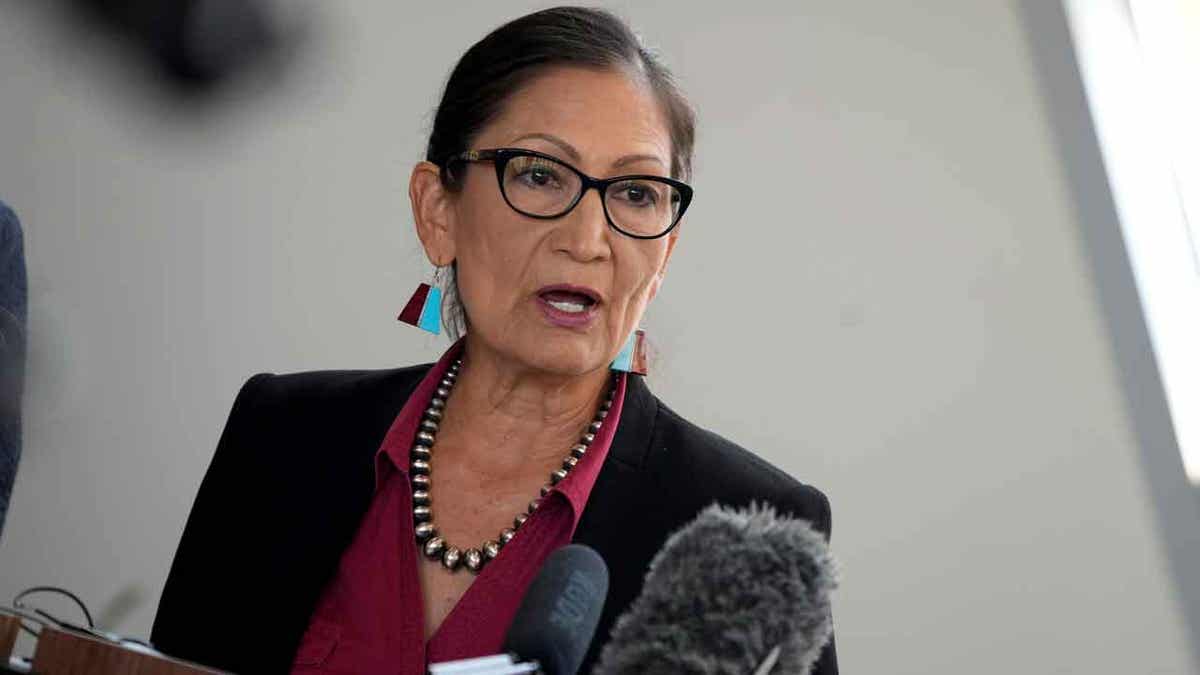
Haaland traces her heritage back on her mother's side to a tribe who lived in the southwestern U.S. for centuries. (AP Photo/David Zalubowski, File) (AP Photo/David Zalubowski, File)
Haaland said 20 of these agreements have been struck under the Biden administration, and 60 more are being developed.
She reported that similar efforts are being undertaken in Australia, where indigenous knowledge is being used to "protect iconic and threatened ecosystems like the Great Barrier Reef."
Haaland said that indigenous people who are "of the land" can better preserve resources for future generations.
CLICK HERE TO GET THE FOX NEWS APP
"Our solutions should be informed by thousands of years of observation, interaction and intimate understanding of our planet’s natural systems," Haaland said. "By centering Indigenous-led conservation, we can leverage the diversified and locally informed knowledge of the communities who have always stewarded the land and waters we all depend on."
